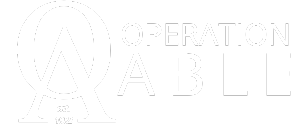Getting the Most from Your Job References

References are Often an Afterthought
by Stephanie Legatos / Career and Job Coach
You know you need a list of references, and every potential employer expects you to have this. However, many people use – and have used – the same people over and over. I think about references as parallel to 360⁰ assessments: use a variety of people who can support your candidacy from different perspectives.
You’re probably already doing the basics – you have a References document, with your name and contact information in the same format as your resume, and you list 3-4 people who know your work pretty well. That’s a great start! But, there’s so much more to think about. So, who are you using – and who can you consider using – as a reference? Although this article focuses on a Reference List, with the exponential expansion of and focus on social media visibility, you can apply these strategies and tips to building, expanding, and creating the best network contacts that align with your goals. The most typical reference is a current/former manager, supervisor, and/or co-worker. Not to diminish their importance – these types of references are critical to your job search. I often hear that people let these connections lapse. If your job search is longer than you anticipated, you might not have kept in touch with these people for a variety of reasons. Or, you may have left the organization on less than the best of circumstances. It is important to reconnect if you can. There are potentially lots of other people who you can use as a reference. Here are some examples you might consider, if you haven’t already.
TEAM LEADER
A manager, supervisor, project manager, or team leader who you reported to cross-functionally on a specific project. They would be able to focus on specific skills, attributes, or ways of working that you contributed to the project’s success – especially if you don’t use these skills on a regular basis in your role.
CUSTOMER
A customer of the company/organization – someone who you interacted with consistently. An external customer has a unique perspective – not only the quality of your work, but also the quality of the interactions and the relationship. Customers can describe you as a person behind the work – your “soft” skills. By the way, more than 70% of employers still state that they hire for soft skills as other job-related skills can be taught. On the other side, maybe your work with a particular customer helped retain the customer? Or generated referrals and new business? Don’t overlook customers!
VENDOR
A vendor of the company/organization who you placed orders with or identified as a new vendor that represented cost-savings or a higher quality product or service. This is another way you are/were a face of the company to the external world. (And, these people represent potential networking resources!)
CLIENT
A client – someone who you worked with long-term or in-depth who can talk about your skills, your personality, and how what you did impacted their goal attainment and success. We all can relate to, and want to hear, these human stories!
PARTNER ORGANIZATION
If you work(ed) in a nonprofit organization; city, municipal, state, or federal agency; or a school or in academia – consider asking an employee of a partner organization for a reference. It could be an organization with whom your organization partnered on a grant, an initiative, or a project. Again, they have a unique perspective because they saw your work, how you work, ideas and/or resources you shared, and how you maintained the reputation of the organization you worked for. A client of mine had been facilitating quarterly meetings with community organizations for two years; she never thought of asking a manager or employee from one of those organizations to be a reference.
VOLUNTEER ORGANIZATION
Volunteer work – You can consider another asking another volunteer, or the person who you supervised your work, someone who can talk about your role and contributions. I recently talked with a client who hadn’t thought about this angle. She was on a fundraising committee at her son’s school. When I asked her what she did that no one else did, she could easily and confidently say, “I came up with a new idea for business contributions and implemented it, raising more money than the school ever raised before through two specific events!” For someone who had a series of short-term jobs in the past four years, the teacher who headed this committee would be an excellent reference.
Watch for Part 2 of this article, focusing on maximizing the value of your references.
Click here to learn more about Operation ABLE’S Job Coaching and Counseling program.

